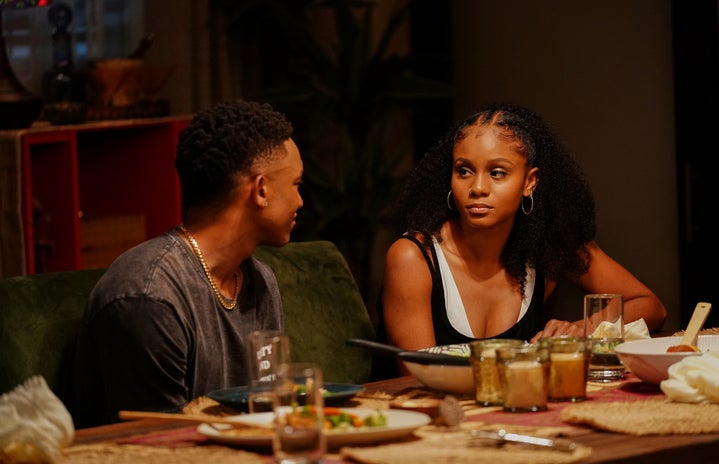“Let’s grab lunch this week.” “Come out to dinner with us!” “We are going down to run to the dining hall before class, you have to come.”
Society has created a synonymous relationship between spending time with those you love and eating food. However for someone with any food allergy or intolerance, these simple phrases have the ability to trigger an immense wave of anxiety and questions. What will I eat? How do I know it is safe? What if I get sick? I know they do for me.
Hi. My name is Taylor Decina. During May of my Senior year of high school I was diagnosed with Celiac Disease. Prior to my diagnosis I had a very faint idea of what having celiac disease meant. I knew from friends that you could not eat gluten and your food probably should not touch anyone else’s food that has gluten in it. Cross contamination or whatever… but how serious could this all be?
According to my doctor, Celiac Disease is an autoimmune disease triggered by the ingestion of gluten. Basically, my body produces antibodies ready to fight pathogens when it senses a crumb of bread. A crumb of bread. Great, so there I was in the middle of a doctor’s appointment on the verge of tears thinking of all my favorite foods I could apparently never eat again. I also kept thinking about how unlucky I was to be diagnosed with an autoimmune disease in the middle of a global pandemic, because I ate bread from the ages of 0 to 18. I am a naturally anxious person so my mind immediately jumped to the conclusion that I was suddenly immunocompromised and going to starve, this was not true. I am dramatic.
During the process of getting diagnosed, I held onto a silver lining: my dad had been diagnosed in April. I was not alone in figuring out my new lifestyle. Celiac is extremely hereditary, so in exchange for passing down such an inconvenience, he got to pay for all the new gluten free food we needed in the house. Again, I was not going to starve like I had originally thought. I found a haven in my local Trader Joe’s and the miniscule Gluten-Free section in my local grocery store. I found my favorite foods again in versions that I could eat and know that I was not harming myself. I was starting to get the hang of my abrupt diet change.
August 2021, COLLEGE! I packed up all my things, threw a couple gluten-free granola bars in my bag for the road trip down from New York, and ventured off to UVA wide-eyed, full of excitement, and forgetful of the fact that I now had to eat all my meals from a community kitchen. A community kitchen full of gluten. I knew that I could not eat the entree station, should probably stay away from the grill, and that the fries were off limits due to their shared fryer. Half of the dining hall was suddenly closed off to me. The salad bar was able to hold me over mid-day when I was too stressed to be hungry, but I was always hungry. Eventually I dared peek at the Allergy Station. The mere sight of their dining options sent a shiver down my spine, but I was coming to face my biggest fear: not eating enough because nothing felt safe. I do not track my calories, my anxiety would not be able to handle that, however I knew that there was no chance I was eating more calories than I was burning off from the mere act of walking to class with my backpack on. I was tired all the time and constantly having stomach pains from the lack of nutrients in my body. My dad, my previous sounding board for all that is gluten-free, was seven hours away. My friends tried to empathize, however I could not burden them with all the internal struggles I was facing from the fact that I did not feel safe fueling my body with the food I was given. I felt isolated.
One day I decided to order a box of Gluten-Free pasta from Amazon. Over the summer Tik Tok had taught me how to make pasta in the microwave and I decided to test the theory in my dorm microwave. It worked. If you asked my roommate she would say I made pasta in our microwave over fifty times during the fall semester. I slowly began to figure out how to eat again. Pasta, smoothies, chicken nuggets, cheesesticks, and the occasional visit to the Salad Bar. I finally felt better.
Living with a severe allergy or intolerance is hard. It is frustrating and scary and overwhelming, however it is not impossible. With a little creativity, patience, and an Amazon prime account, eating at college can be completely safe.

